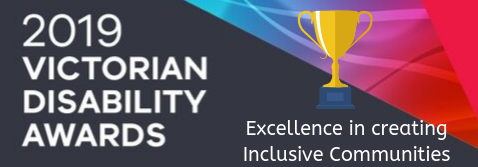How does Voice at the Table help people with an acquired brain injury?
This video has interviews with members of Brain Injury Matters, who participated in the first ever Voice at the Table training in 2016.
“Voice At The Table is such an important initiative. It empowered everyone who attended”
Peta Ferguson
In March 2016, Members of “Brain Injury Matters”, a self advocacy group for and by people with an acquired brain injury, took part in the first ever Voice at the Table training. The training has had a lasting impact. Francesca Lee said “Before I did the course I was very insecure and scared to speak up, I was embarrassed at the way I spoke”. In the years since the training, her life has changed. “I’ve done many speeches. I’ve been on committees and I’ve also travelled around Australia and spoken in public and that has given me so much confidence.”
But Voice at the Table isn’t just about building the capacity of people with disabilities. It is also a project dedicated to redressing the barriers that people with a cognitive disability face when trying to have their say. Troy Huggins said “I’ve been involved in meetings where I was treated as a token. Basically just there for the scenery. People were asked questions either side of me, but I wasn’t addressed.” The language that is used in meetings and the way a meeting is conducted can have a big affect too. Francesca Lee said “they start talking all their jargon and you’re not really understanding properly what’s going on. It can make me feel very hopeless and just not respected in the group.”
Voice at the Table offers inclusion training and resources for Government Departments and Community organisations who want to ensure people with disabilities have a real and equal say in decision-making. Francesca Lee, who has facilitated training for TAC staff says, “I think it’s excellent if Government do it because they get to see exactly how it is for people with a disability and they can hopefully learn to be a bit more inclusive.” Peta Ferguson adds, “our opinion is so important. The lived experience is necessary.”



